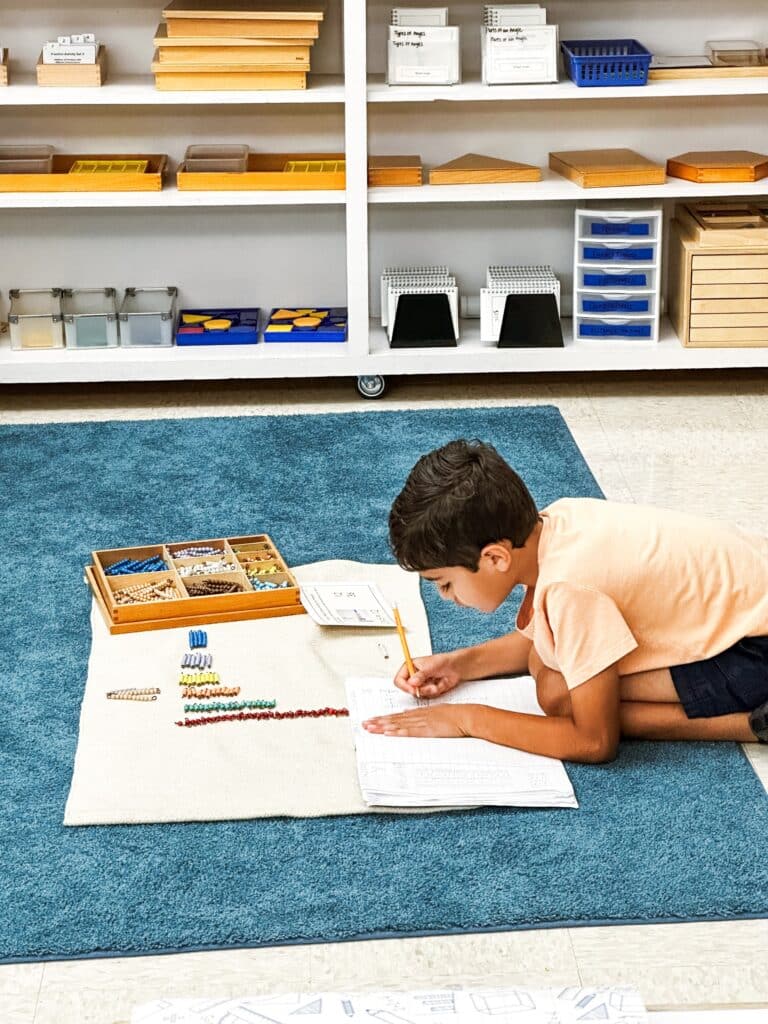In today’s landscape of school marketing, many institutions claim to instill a love for lifelong learning in their students. But what does that really mean? Does it imply that every child will remain endlessly curious and always eager to learn more? At The Montessori School of San Antonio, we take this commitment seriously, and our approach is rooted in more than just a catchphrase. We believe that lifelong learners embody specific qualities—qualities that we nurture and cultivate in our students from ages 3 through 14.
Curiosity: The Foundation of Learning
First and foremost, lifelong learners are curious. At MSSA, curiosity is not just encouraged—it’s central to everything we do. Our child-centered, hands-on learning approach, combined with a thoughtfully prepared environment and the use of mixed-age groups, fosters an atmosphere where curiosity thrives. In our classrooms, learning is not confined to textbooks or rigid schedules; it is an exploration of the world, where students are invited to follow their interests and questions, discovering knowledge through active engagement. The multi-sensory materials in our classrooms empower students to explore and understand concepts in concrete, tangible ways, making learning meaningful and deep.
Self-Motivation: The Internal Drive to Learn
Self-motivation is another defining trait of lifelong learners. At MSSA, students are not passive recipients of information—they are active participants in their own learning journey. With the guidance of their teachers, students plan and organize their school week, gaining skills in time management, goal setting, and self-assessment. This autonomy in learning fosters intrinsic motivation, where students are driven not by external rewards, but by a genuine desire to explore, understand, and master new concepts. As they navigate through subjects like math, science, history, and English, students develop a deep understanding of how different topics interconnect, fueling their desire to know more and discover new ideas.
Open-Mindedness: Welcoming New Perspectives
Lifelong learners are open-minded, willing to hear what others have to say and consider new ideas and perspectives. At MSSA, we embrace this characteristic through our Social-Emotional Learning (SEL) program, which teaches students to be empathetic, compassionate, and respectful of diverse viewpoints. From a young age, children learn the value of listening to others, understanding different perspectives, and engaging in thoughtful discussions. This open-minded approach not only helps students navigate complex social dynamics but also prepares them for a world that values diversity and collaboration.
Collaboration: Learning from and with Others
A collaborative spirit is another key attribute of lifelong learners. At MSSA, the mixed-age classrooms foster an environment where younger children learn by observing their older peers, while older children gain confidence and reinforce their understanding by teaching younger students. This collaborative dynamic is intrinsic to Montessori’s philosophy, which emphasizes peer-to-peer learning and mutual respect. Children help each other solve problems, share ideas, and support one another’s growth. As students work together on projects, participate in group discussions, and collaborate on problem-solving activities, they develop important skills in communication, teamwork, and leadership—skills that are essential for success in both academic and real-world contexts.
At The Montessori School of San Antonio, we do more than just teach academic content—we cultivate the essential qualities that define lifelong learners: curiosity, self-motivation, open-mindedness, and collaboration. Our approach ensures that when students leave MSSA, they are not only knowledgeable but are equipped with the qualities that will sustain their passion for learning throughout their lives.

